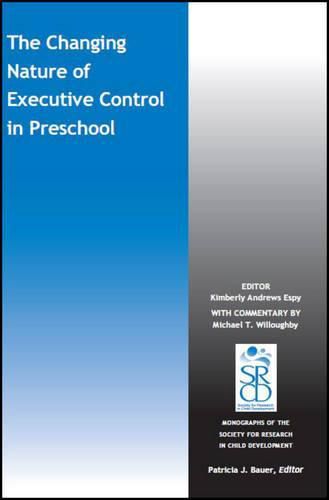Readings Newsletter
Become a Readings Member to make your shopping experience even easier.
Sign in or sign up for free!
You’re not far away from qualifying for FREE standard shipping within Australia
You’ve qualified for FREE standard shipping within Australia
The cart is loading…






Executive control (EC) is a central construct in developmental science, although measurement limitations have hindered understanding of its nature and development in young children, relation to social risk, and prediction of important outcomes. Disentangling EC from the foundational cognitive abilities it regulates and that are inherently required for successful executive task completion (e.g., language, visual/spatial perception, and motor abilities) is particularly challenging at preschool age, when these foundational abilities are still developing and consequently differ substantially among children. A novel latent bifactor modeling approach delineated respective EC and foundational cognitive abilities components that undergird executive task performance in a socio demographically stratifi ed sample of 388 preschoolers in a longitudinal, cohort-sequential study. The bifactor model revealed a developmental shift, where both EC and foundational cognitive abilities contributed uniquely to executive task performance at ages 4.5 and 5.25 years, but were not separable at ages 3 and 3.75. Contrary to the view that EC is vulnerable to socio-familial risk, the contributions of household financial and learning resources to executive task performance were not specific to EC but were via their relation to foundational cognitive abilities. EC, though, showed a unique, discriminant relation with hyperactive symptoms late in the preschool period, whereas foundational cognitive abilities did not predict specifi c dimensions of dysregulated behavior. These findings form the basis for a new, integrated approach to the measurement and conceptualization of EC, which includes dual consideration of the contributions of EC and foundational cognitive abilities to executive task performance, particularly in the developmental context of preschool.
$9.00 standard shipping within Australia
FREE standard shipping within Australia for orders over $100.00
Express & International shipping calculated at checkout
Executive control (EC) is a central construct in developmental science, although measurement limitations have hindered understanding of its nature and development in young children, relation to social risk, and prediction of important outcomes. Disentangling EC from the foundational cognitive abilities it regulates and that are inherently required for successful executive task completion (e.g., language, visual/spatial perception, and motor abilities) is particularly challenging at preschool age, when these foundational abilities are still developing and consequently differ substantially among children. A novel latent bifactor modeling approach delineated respective EC and foundational cognitive abilities components that undergird executive task performance in a socio demographically stratifi ed sample of 388 preschoolers in a longitudinal, cohort-sequential study. The bifactor model revealed a developmental shift, where both EC and foundational cognitive abilities contributed uniquely to executive task performance at ages 4.5 and 5.25 years, but were not separable at ages 3 and 3.75. Contrary to the view that EC is vulnerable to socio-familial risk, the contributions of household financial and learning resources to executive task performance were not specific to EC but were via their relation to foundational cognitive abilities. EC, though, showed a unique, discriminant relation with hyperactive symptoms late in the preschool period, whereas foundational cognitive abilities did not predict specifi c dimensions of dysregulated behavior. These findings form the basis for a new, integrated approach to the measurement and conceptualization of EC, which includes dual consideration of the contributions of EC and foundational cognitive abilities to executive task performance, particularly in the developmental context of preschool.